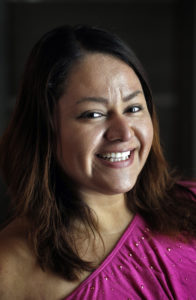Journalists discuss best practices for pressing Trump on public records
In recent months, the Trump administration has challenged the value of the American media. In tweets, President Trump called journalists “the enemy of the American people.” He’s denied the press interviews and called certain journalistic reports “fake news.” Prominent Latino journalists such as CNN’s Jim Acosta and Fusion’s Jorge Ramos press on, continuing to challenge the authority of those in power through public records requests.
Although the data on public records denied by the current administration is minimal, a recent survey by the Knight Freedom of Information Fund concluded that the number of public records requests denied is on the rise.
“(It) doesn’t matter what president is in power, the establishment is getting very good at hiding public records,” said David Cuillier, director at the University of Arizona School of Journalism.
To help journalists in their fight for information, SPJ held a panel with investigative reporter Seth Rosenfeld and Cuillier, to inform the audience on available resources and how to pressure authorities to retrieve records. Claiming that releasing this information would be an invasion of privacy is one of the top ways that law enforcement avoids releasing police reports.
Journalists can attain legal assistance to help inform the public and get better access public records. There are also guidebooks to access different type of records. Students can reach out to the Student Press Law Center, which offers legal guidance without any charge.
Rosenfeld knows firsthand the process to acquire any public record can be difficult and costly. His most notable case—seeking documents which revealed that the FBI was spying on student organizers in the University of California system—lasted nearly 20 years. After a series of trials, the FBI conceded and released over 350,000 documents. The judge ruled the FBI had to pay more than $1 million in attorney fees to Rosenfeld’s lawyers.
“I think the public knows that facts matter and the truth matters,” Rosenfeld said.

Romyna Camacho’s passion is producing.
A broadcast and digital journalism major at California State University’s campus in Fullerton, Camacho thought she wanted to be a reporter early in her college career. But once she got involved with the communications program on campus, she realized she loved producing because whether it’s a failure or a success, she knows it’s work she can claim as her own.
At Telemundo 52 in Los Angeles, Camacho helped write scripts and edit footage as an intern.
Her dream is to produce internationally for CNN or Fusion and eventually cover environmental issues such as drilling and pollution in Latin America.